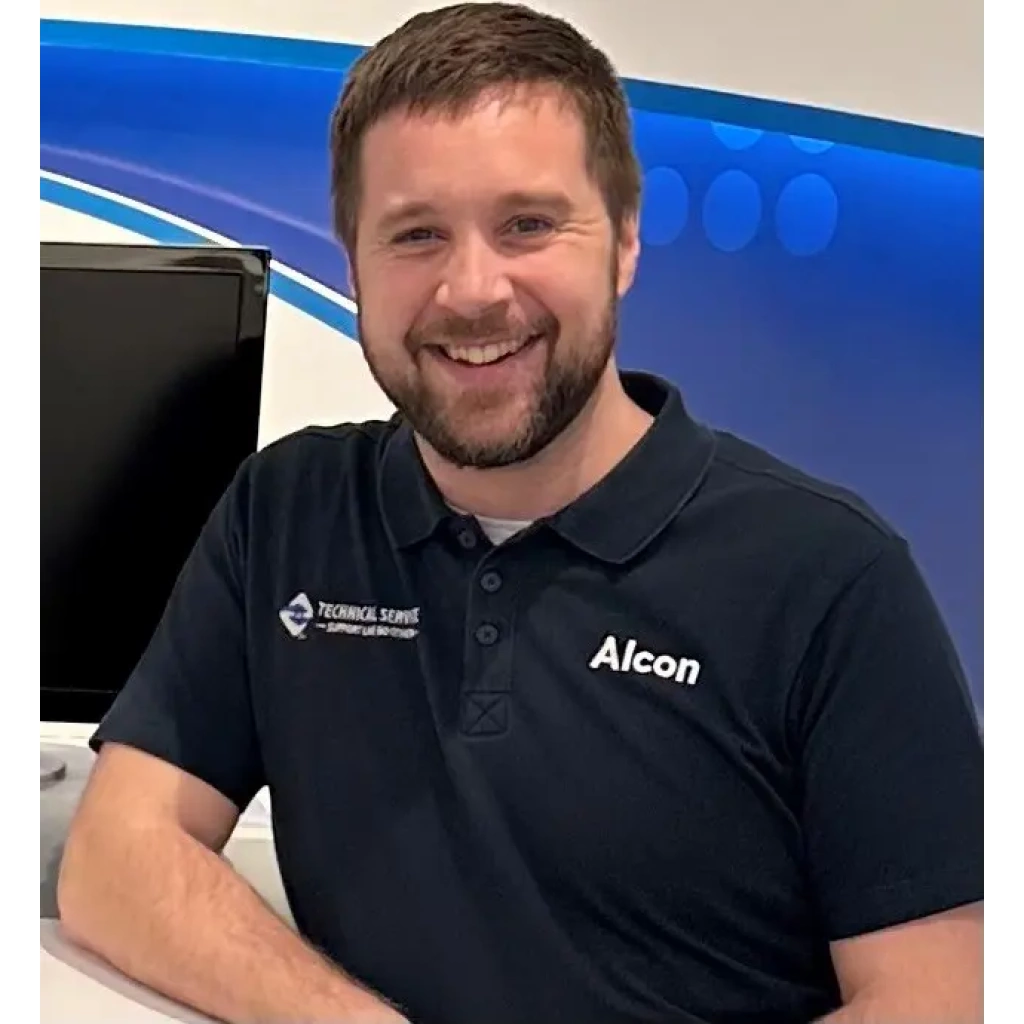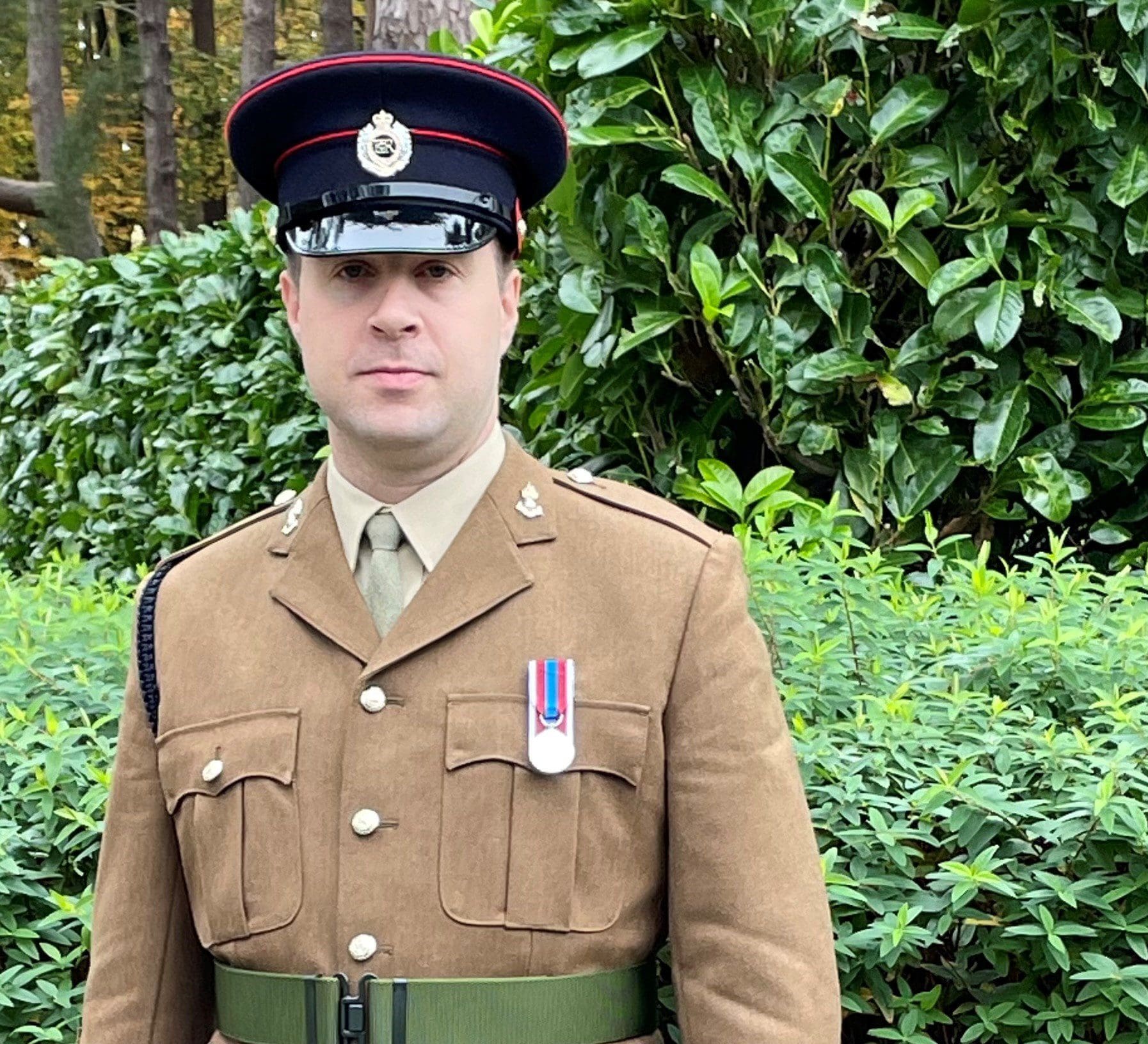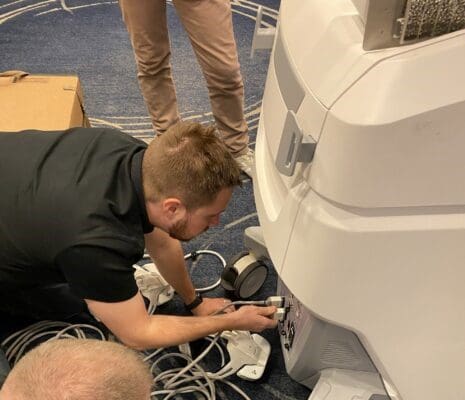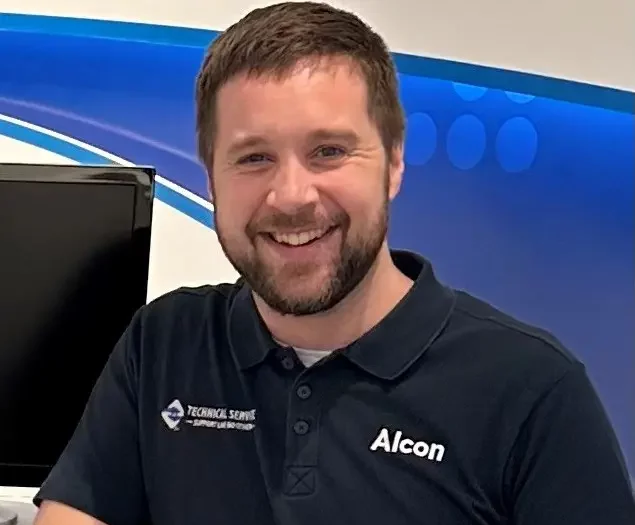Life and challenges of an Ophthalmic Field Service Engineer
Ryan Westwood is a Senior Field Service Engineer for Ophthalmic Equipment and covers the UK and Ireland for Alcon. In this article he shares his experience both commercially and in the British Army and gives advice for working as a Field Service Engineer.


Working as a Senior Field Service Engineer for Alcon with Ophthalmic Products
Background in IT
Have you always been interested in technology and the way things work?
My fascination has always been with computers. This has fuelled a passion for technology in general and, coupled with a desire to support and help people, and ultimately led me to become a Field Service Engineer.
As a child what was the electronic device which impressed you the most?
I remember my mother having a home office setup in the early Nineties consisting of a personal computer with a monochrome monitor and dot-matrix printer.
In the late Nineties, I remember setting up my mother’s computer when we moved from Canada to the UK, despite her telling me not to. I plugged it in, turned it on and heard a pop, having not switched the power supply from 120v to 240v.
She was not impressed with me, but this led to my first experience of technical support at our local retailer.
What were the key skills you learnt from working in IT support? (Soft and hard skills)
Working in IT Support has helped me to develop troubleshooting skills and a technical proficiency with both hardware and software. In terms of soft skills, I’ve learned how to effectively communicate and problem-solve, but most importantly, valuable customer service skills such as patience and empathy.
What are your top tips for explaining something technical to someone non-technical?
In my experience, I’ve found that most people aren’t interested in technical explanations and just want whatever isn’t working, fixed. However, when someone is interested, I’m more than happy to explain things in a simplified way, using analogies or breaking things into smaller bite-size pieces.
IT to Medical Industry and work as an Ophthalmic Field Service Engineer
Why did you decide to move into the medical industry?
When I finished college, I decided not to go to university, despite being offered the opportunity to study Computer Science with Network Management. I was working for a major UK retailer at the time providing EPOS system support. This led to a broader role in retail operations and eventually retail security, then on to corporate security.
I was fortunate to have my skills in IT recognised and offered a role in the IT department of my current employer. My customer-centric approach and technical ability had been acknowledged widely by the UK business; I was offered an opportunity to join the Technical Service department as a Field Service Engineer. I’m very grateful to those that gave me the opportunity to grow into the roles that I wouldn’t have been a preferred candidate for, on paper.
How easily did your skills transfer?
The soft skills that I had developed transferred incredibly easily. I’m consistently learning within my role and, again I’ve been incredibly fortunate to be surrounded by a very supportive team of talented people. With that said, a lot of technology is increasingly reliant on computers and networking, so they are becoming relevant again.
How challenging was the transition?
My employer was very supportive. I was able to co-travel with several colleagues who I learned from in advance of attending formal product training. The training I received was first class, delivered by product specialists in both the US and Europe. Before working independently, my colleagues validated my training through further co-travel opportunities.
Transferable skills between industries
Why do you think someone with an IT background is a good fit as a Medical Field Service Engineer?
Technology is becoming more and more reliant on computers and interconnectivity. Therefore, this technology will, inevitably need installation, maintenance, and repair support at some point. An IT professional is likely to possess the hard and soft skills necessary to deliver customer satisfaction.
Once an engineer is a good field service engineer, do you think it is possible to work in any industry and with any technology (with some training)?
Absolutely! I believe that having a curious mind and an aptitude for technology can be applied in almost any industry as a Field Service Engineer, provided the individual is passionate about what they’re doing and why.
Military Experience


You’re a Reservist in the British Army’s, Corps of Royal Engineers. How do you balance this with a full-time job as a Field Service Engineer?
It’s not always easy. If I’m honest, my level of commitment decreased when I became a Field Service Engineer as I’m often away from home. Although, I have still been able to meet the annual commitment requirements. I’ve had great support from my employer, but even more so from my family.
What experience do you take from the Army Reserve into your current role?
I’ve been a Sapper in the Army Reserve for over 10 years.
A Sapper in the Royal Engineers is a Soldier first. Being a Soldier, requires the development of skills such as discipline, attention to detail, adaptability, and teamwork to name but a few.
Secondly, a Sapper is a Combat Engineer, enabling the Army to live, move, and fight. This often requires the ability to take initiative and solve problems.
Lastly, a Sapper is a tradesman. My trade is a technical one and has had a few names, such as Signaller, C3S Specialist, Digital Communications Technician. I’ve been responsible for providing the installation, maintenance, training and operation of secure, encrypted voice and data systems in the UK and abroad.
What are the additional challenges of maintaining equipment in a military context?
Soldiers. Whether they be heavy-handed, careless, inexperienced, or simply bored!
Typical week as a Senior Field Service Engineer covering UK and Ireland
Ophthalmic Equipment
Can you describe the type of equipment you support?
I support a variety of ophthalmic equipment including.
Cataract / Vitrectomy Systems
Consisting of fluidic, pneumatic, ultrasound, illumination, and laser sub-systems.
Visualisations Systems
Such as microscopes and 3D digital video systems.
Diagnostics Systems
Used for taking measurements pre- and post-surgery.
Laser Systems
Used to correct refractive errors.
Typical week as an Ophthalmic Field Service Engineer
What’s your typical week like?
I often visit one or two customer each day. This depends on how many systems each customer has. I’m often in Operating Rooms / Theatres / Day Surgery Units or other clinical areas. So, a week will consist of a combination of preventive maintenance, repair, or inspection service activities. Some systems are more complex than others as are some repairs, so service activities vary in length.
How much of your time is spent ‘hands on’ with customers and how much on administration, training, and other aspects of your role?
My role divides as follows:
40% Customer Facing
30% Travel
30% Admin/Training
Which other people in the workplace give you support?
Different areas give me support.
Other UK & Ireland Field Service Engineers
Operations and Compliance Specialists in our UK Head Office
Field Service Manager / Technical Service Associate Director
Surgical Sales Team
Technical Support Specialists in our Global Service Centres
Cross Border Support Engineers
Do you also train the customers?
We can offer 1st line technical training to customers, but often they contact us for any issues they face.


Most challenging part of the job as an Ophthalmic Field Service Engineer
What is the most challenging part of your job – technical side, logistics or customers?
I think every job has its own set of unique challenges whether they be not getting a response from a customer you need to visit, having to travel further than you’d like, or facing a problem you’re not prepared for, but you learn to adapt and overcome.
What has been your most challenging job to date?
I’m relatively new to the refractive laser side of our business. Because of that, my inexperience often makes me doubt my thought process. For example, I had an issue recently where I was left feeling unsure of what my next step should be. This caused a great amount of frustration, but I was able to reach out to my manager, a former colleague, and our cross-border team who were able to support me through the issue.
What do you do when a problem seems to be unsolvable?
I try to focus on just taking the next step rather than worrying about the whole problem. When I’m really struggling, I look for support and collaboration from my colleagues.
Making a future star
Apart from a strong technical background, what are the three most important skills for a field service engineer to have?
The three key areas are:
Communication Skills
Customer Service Skills
Administrative Skills
What sort of personality traits are ideal for a field service engineer to be successful?
They need the following three traits:
Dependability
Empathy
Accommodating
Is there anyone who should not consider working in field engineering?
Someone that isn’t passionate about delivering a high standard of service, doesn’t enjoy travelling or their own company.
The author, Ophthalmic Field Service Engineer
Ryan Westwood had a background in IT and Security before moving to Medical Engineering. Ryan is now a Senior Field Service Engineer covering the UK and Ireland for Alcon who are the global leader in eye care. They are the largest eye care device company in the world with complementary business in surgical and vision care.
For the last ten years, Ryan has been a Sapper in the Corps of Royal Engineers (Reserves).


Further reading
Life as a woman application specialist with medical equipment
One man’s tribute to the challenges of Medical Field Engineers


Responses